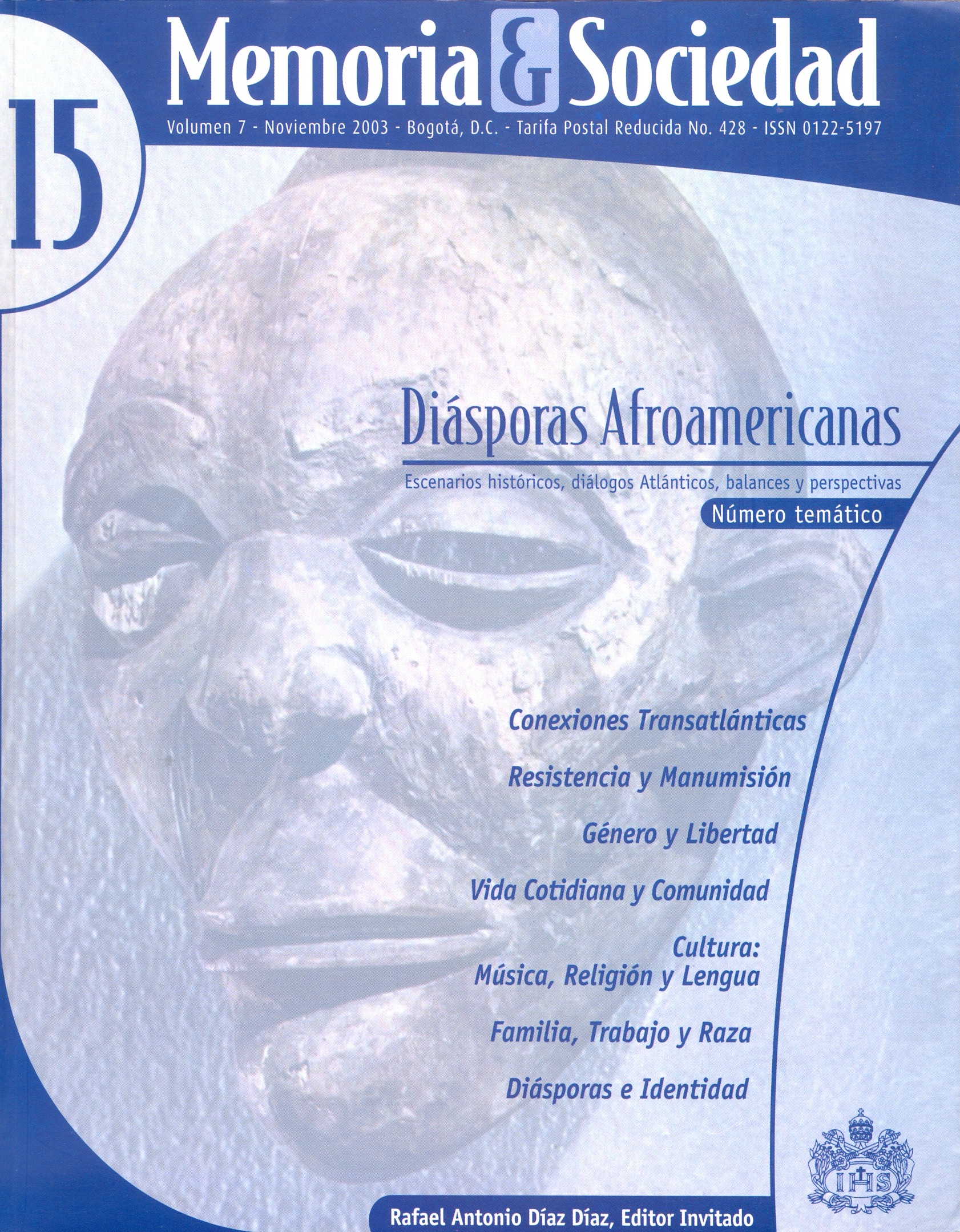Abstract
Translated from english: Silvia Cogollos Amaya
This paper examines the role of women of colour in Cuba's transition to free labour (1870 - 1886). It was found that a significant majority of petitions for freedom or for amelioration of the conditions of slavery was made by women. Women had a major, and specific, role to play in resisting slavery. This is attributed to various factors Women's responsibility for their own families meant that they had a vested interest in manipulating the legal system in order to free their children or relatives, or ameliorate their conditions. Many female slaves were also involved, due to their role as domestics, in the white family and household. Women of color thus had a role in the crossing of boundaries. This sometimes extended to sexual relations with white men and to their part in transmitting Afro-Cuban culture. The language lased in appeals shows not only that, women had a different material position within the slave system, but that their discursive positioning was different also. The system spoke primarily to the subjugation of black males by whites, leaving women in an ambiguous position which sometimes worked to their advantage.
The fact that women of colour have largely been omitted from the writing of Cuban history means that these kinds of issues have not been examined in the Cuban context. An approach which includes both race and gender perspectives may lead us substantially to rethink Cuban history in this period.
The journal Memoria y Sociedad is registered under a Creative Commons Attribution 4.0 International Public License. Thus, this work may be reproduced, distributed, and publicly shared in digital format, as long as the names of the authors and Pontificia Universidad Javeriana are acknowledged. Others are allowed to quote, adapt, transform, auto-archive, republish, and create based on this material, for any purpose (even commercial ones), provided the authorship is duly acknowledged, a link to the original work is provided, and it is specified if changes have been made. Pontificia Universidad Javeriana does not hold the rights of published works and the authors are solely responsible for the contents of their works; they keep the moral, intellectual, privacy, and publicity rights.
Approving the intervention of the work (review, copy-editing, translation, layout) and the following outreach, are granted through an use license and not through an assignment of rights. This means the journal and Pontificia Universidad Javeriana cannot be held responsible for any ethical malpractice by the authors. As a consequence of the protection granted by the use license, the journal is not required to publish recantations or modify information already published, unless the errata stems from the editorial management process. Publishing contents in this journal does not generate royalties for contributors.

